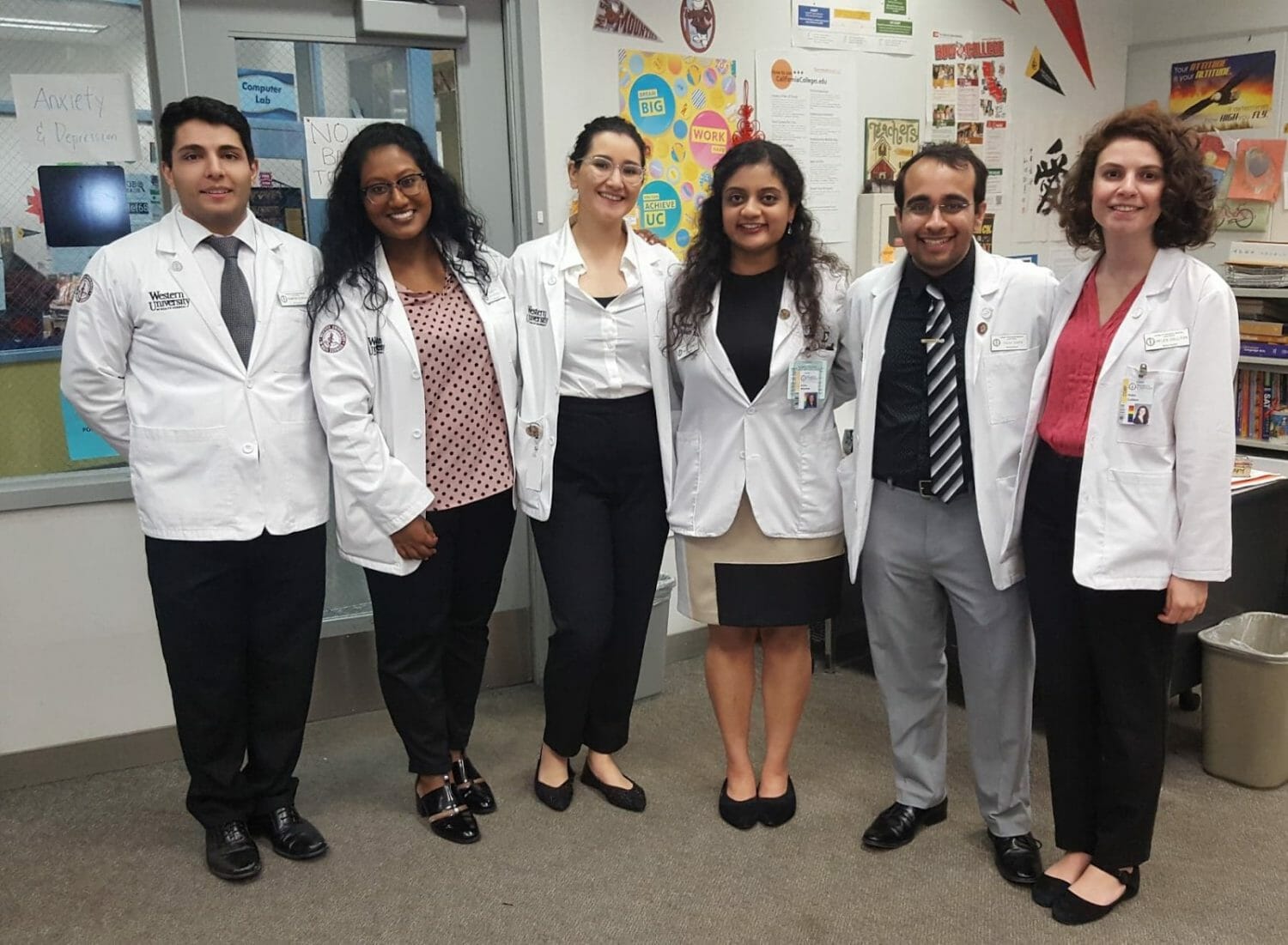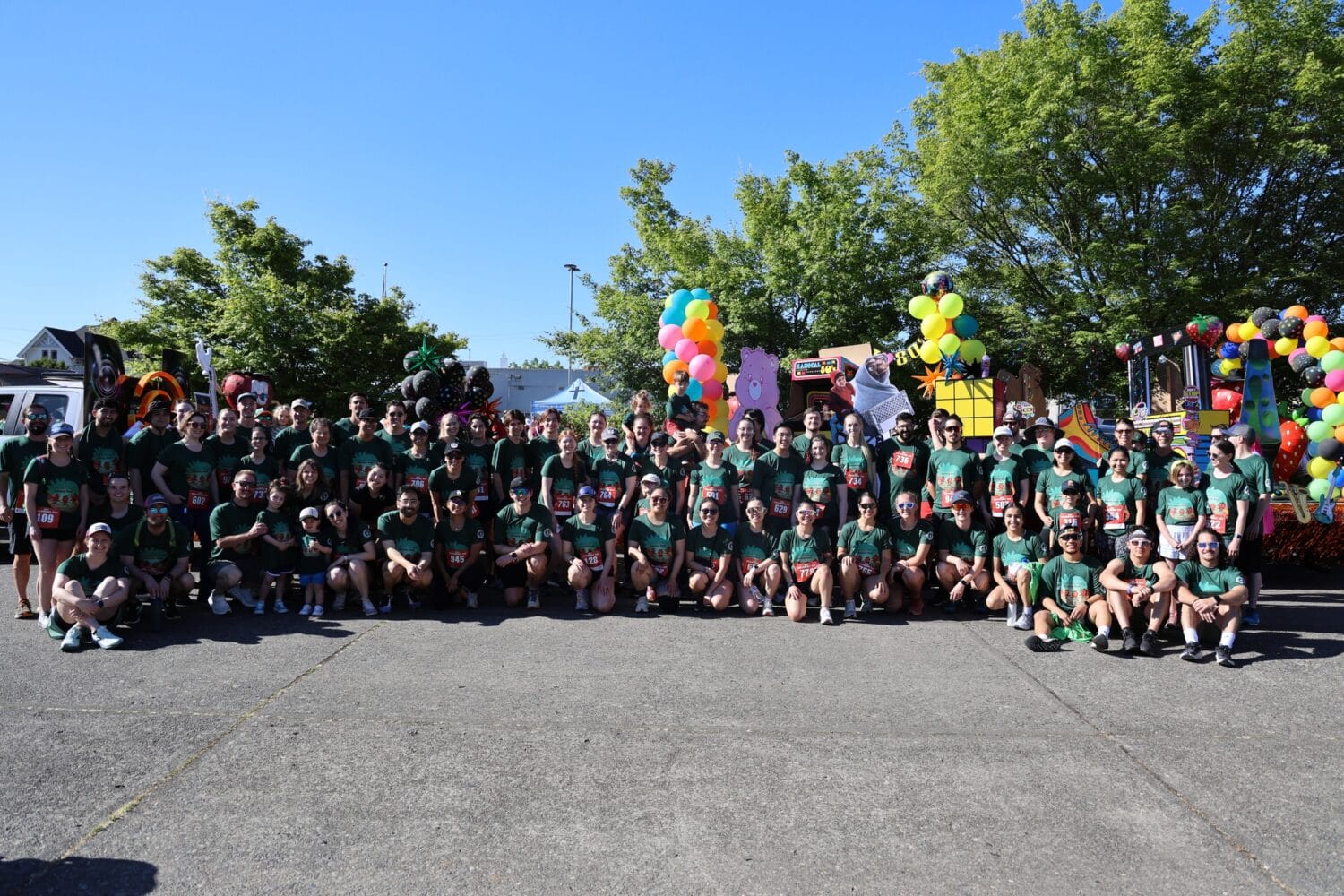WesternU receives Helping Hands grant to promote mental health
A team of Western University of Health Sciences students and faculty received a $2,500 grant from the American Psychiatric Association’s Helping Hands Grant Foundation to continue their work improving mental health literacy among the underserved and fostering medical student interest in psychiatry.
The WesternU team, made up of College of Osteopathic Medicine of the Pacific (COMP) students and WesternU Senior Vice President and Provost David Baron, DO, MSEd, is providing education, information, and resources to improve community mental health literacy and reduce stigma toward mental illness in Pomona and surrounding communities.
Identifying and teaching effective coping strategies is more important than ever as families deal with the added stress of the COVID-19 pandemic and fires devastating Southern California, Baron said.
“Parents and students need to hear, it’s OK to not be OK, and there are things we can do together to through this,” he said. “This program has taken a very important first step in the process of emotional health and wellness.”
The WesternU Club of Psychiatry Enthusiasts (COPE) is collaborating on this project with WesternU’s Pomona Community Health Action Team (PCHAT), which is a student-led, interdisciplinary free health organization, consisting of medical, physician assistant, and nursing students from WesternU.

The team first received grant funding in 2018-19, which allowed them to conduct mental health seminars and anti-stigma workshops at Garey High School in Pomona, Hurley Elementary School in La Puente, and the Latino Family Symposium in Pomona in January 2019. They reached more than 200 K-12 students and their parents through these outreach efforts.
“We talked to them about mental illness and suicide prevention,” said fourth-year COMP student Asmita Mishrekar. “We helped them and in doing so we helped ourselves. A lot of medical students who participated in the project realized the importance of mental health and are now pursuing psychiatry. We learned more about our community, so now we know how best to serve them.”
The team provided suicide prevention resources and helped participants realize their own limiting perspectives and stigma toward mental health.
“We were able to teach them what mental illness is, how it presents and what to do about it,” Mishrekar said. “We had parents who thanked us after the seminars. They were really relieved about being able to have conversations with their teenage children and knowing how to navigate through difficult conversations.”
The specific goals of this program are to continue efforts to improve community mental health literacy by delivering virtual seminars and anti-stigma workshops to K-12 students and their families. The objectives are to educate underserved communities on mental illness, substance use disorders, and suicide prevention while reducing stigma. The long-term goals are to incorporate mental health education at each grade level and foster medical student interest in psychiatry.
“I’ve grown tremendously as a future clinician. It helped me conquer my fear of public speaking and gave me a platform to conduct research in mental health and positively impacted how I evaluate patients on rotations,” Mishrekar said. “This project reaffirmed my desire to pursue psychiatry and work with underserved populations.”



